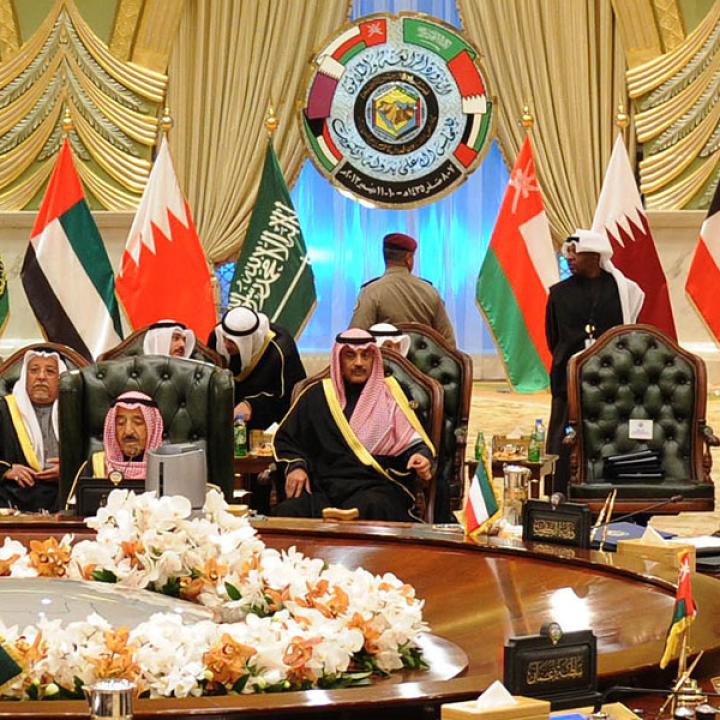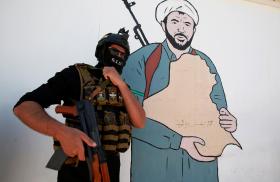

Successful diplomacy could enhance Arab normalization with Israel and boost U.S. efforts to counter Iran, but it is unclear if Riyadh wants to bargain now or wait for Joe Biden.
Senior presidential advisor Jared Kushner and a team of top American negotiators are set to visit Saudi Arabia and Qatar this week, raising hopes that the row between the U.S. allies—which began a few months into the Trump administration—could be resolved before the president leaves office. But many thorny issues need to be settled or bypassed before that can happen.
IMPACT OF THE RIFT
Although the fissures between the Gulf states stem from a bevy of past disputes, the current split essentially began on May 23, 2017, when a series of pro-Iranian stories appeared on the Qatar News Agency website, prompting condemnation by Saudi Arabia and the United Arab Emirates. (U.S. officials subsequently concluded that the UAE had orchestrated the hacking of the website.) On June 5, Riyadh and Abu Dhabi joined Bahrain and Egypt in severing diplomatic relations with Doha and imposing a land, sea, and air blockade. The next day, President Trump publicly accused Qatar of supporting terrorism. On June 23, after the U.S. State Department pressured the parties to clarify the dispute, the four blockading countries issued a thirteen-point list of demands that accused Qatar of cultivating close ties with Iran, supporting terrorism and Islamic extremism, and funding hostile media (for the full list, see page 5 of the Washington Institute paper “Qatar Without Tamim”).
By most measures, the blockade has failed. Qatar, which reaps huge revenues from natural gas sales, has survived and even prospered economically. Its relations with Washington remain intact. In January 2018, President Trump thanked Emir Tamim bin Hamad al-Thani for efforts “to counter terrorism in all its forms,” and the giant al-Udeid Air Base continues to host more than 10,000 American service personnel and strike aircraft used in the campaign against the Islamic State. Washington is also grateful to Doha for hosting a Taliban mission, thereby facilitating Afghanistan peace talks. In the Gaza Strip, Qatari money delivered via Israel continues to provide humanitarian support for Palestinians (though many fear that the funds bolster Hamas as well).
DIPLOMATIC OPPORTUNITIES AND IMPEDIMENTS
Significantly, reports on Kushner’s trip imply that he will not visit Abu Dhabi, where Crown Prince Muhammad bin Zayed al-Nahyan, the UAE’s de facto ruler, is believed to implacably oppose concessions toward Doha. Yousef Al Otaiba, the Emirati ambassador in Washington, stated on November 16 that ending the rift “is not on anyone’s priority list.”
For its part, Qatar regards opening Saudi airspace to flights in and out of Doha as an initial prize worth pocketing if available—it was an agenda item in Saudi-Qatari talks a year ago. Yet de facto Saudi leader Crown Prince Muhammad bin Salman may not want to make concessions to a delegation from the Trump administration. On November 27, the Financial Times carried a long report headlined “Saudi Arabia seeks to resolve Qatar crisis as ‘gift’ to Joe Biden.”
Unwinding the rift could also be challenging because of legal actions Doha has taken. In June, the World Trade Organization ruled that Riyadh had actively backed a company that allegedly pirated Qatari-owned satellite sports broadcasting. And in July, the International Court of Justice supported Qatar’s complaint to the International Civil Aviation Organization that the blockading countries were violating conventions on passenger flights through foreign airspace.
Regarding ties with Israel, Qatar arguably remains a prospective normalization partner despite a loud counter-narrative pushed by the UAE. Doha took initial steps toward that end as early as the 1990s, incurring condemnation at the time from Arab neighbors. A Qatari minister attended the funeral of Israeli prime minister Yitzhak Rabin in 1995, and an Israeli trade office existed in Doha for several years. Although relations have since cooled, Israelis can still visit the country using Israeli passports.
More broadly, the rift has undermined Arab Gulf unity on withstanding Iran’s malign regional activities. Resolving it would therefore boost the effectiveness of American policy on that and related issues in the Middle East.
Simon Henderson is the Baker Fellow and director of the Bernstein Program on Gulf and Energy Policy at The Washington Institute.


